SCOTUS To Hear Case Challenging New York, NY Gun Restrictions

In what has fast become the “to-watch” gun rights case, the Supreme Court last week granted certiorari to the lawsuit brought by the New York State Rifle and Pistol Association against New York City. So what does that mean, and why is it important?
New York City Law
Before we get into the weeds, let’s start at the beginning. New York state law requires a permit to lawfully possess a firearm within one’s home or workplace. Additionally, New York City has a unique provision to its licenses. This provision states that you cannot transport a handgun from the city to anywhere outside of it. The specific legalese reads:
To maintain proficiency in the use of the handgun, the licensee may transport her/his handgun(s) directly to and from an authorized small arms range/shooting club, unloaded, and in a locked container, the ammunition to be carried separately.
Emphasis mine. Well, wait a moment. This provision seems to state the opposite, that you can transport a handgun, so long as you store it properly. However, New York City ordinance says that an authorized small arms range/shooting club is one that has been approved by the NYPD Commissioner. The NYPD Commissioner can only approve ranges within the City of New York. Thus, it is unlawful to transport a handgun registered in the city to anywhere outside the city limits. This includes shooting ranges, your business or workplace, or even your house if it’s outside city limits.
The Complaint
This restriction obviously poses a rather severe burden to shooters and gun owners, especially competition shooters. I specifically mention competition shooters because they’re the ones carrying the case. Every civil case has to have a wronged party. They must prove that they were harmed by the actions or restrictions they’re challenging.
In this case, those individuals are Romolo Colantone, Efrain Alvarez, and Jose Anthony Irizarry. All three are long-time holders of NYC handgun licenses (Mr. Colantone has held his for 33 years), and all three regularly traveled for competitions.
The original filing with the District Court for the Southern District of New York alleges 4 counts or issues that they are appealing to the court to fix. While there are other counts, which allege violations of the right to travel, first amendment rights (to acquire more training, constituting assembly and speech violations), and commerce clause violations, the first is the most important.
The Important Bit
Count I of the complaint argues that NYC’s law constitutes an unconstitutional infringement on the plaintiff’s 2nd and 14th Amendment rights. This is probably the most obvious and straightforward, in my layman’s opinion, of the counts. The count argues that
The Second Amendment, which applies against the City of New York… by operation of the Fourteenth Amendment, secures the plaintiffs’ individual and fundamental “core” right to posess and carry a firearm for the purposes of public and private defense, and the defense of hearth and home.
It goes on to say that by de facto banning attending competitions (as no matches happen within New York City), and restricting the plaintiffs to ranges inside the city, is unconstitutional.
Importantly, the complaint specifies that even if there was a “compelling” government interest, it was not “the least restrictive means of achieving that intent.” This is the crucial bit, because implicitly what the brief is alleging is that the law fails the strict scrutiny test.
Strict Scrutiny
Strict scrutiny is one of three bases that courts use in reviewing governmental laws and policies. The other two are known as rational basis and intermediate scrutiny. The rational basis test is the lowest level. To pass rational basis, the government has to show only that there is a legitimate governmental interest the law furthers. Intermediate scrutiny involves the government proving the law or policy serves an important governmental objective and secondly, is substantially related to achieving that objective.
Strict scrutiny is the highest level of test imposed on law or government policy. Once the court determines that strict scrutiny should be applied, the challenged law or policy is presumed to be unconstitutional. The government has to prove it passes the strict scrutiny test. First, the law or policy must serve a compelling government interest. Secondly, the law must be narrowly tailored to achieve that interest. Thirdly, it must be the least restrictive means of achieving that interest.
In Conclusion
That wording is why this case is one to watch. The Supreme Court has an opportunity to implement strict scrutiny for Second Amendment cases, which going forward would make other laws passed by restrictive jurisdictions more likely to be struck down by lower courts.
Currently, the Supreme Court has issued a Writ of Certiorari, or an agreement to hear arguments. The case has not yet been scheduled, but will likely be heard before the end of 2019.
Sources:
Benjamin is a law student living in Maryland. He was introduced to firearms at summer camp when he was thirteen. Ever since his first shot with a .22LR bolt-action he has been in love with shooting sports. He is a moderator on the TFB Discord, which can be found at https://discord.gg/bcVD9zw, and can occasionally be found on twitter @BFriedmanUSA.
More by Benjamin F





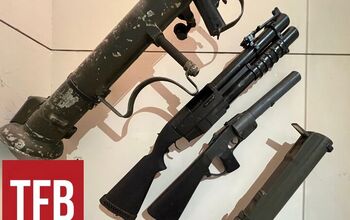
![An Interview with Kyle Lynch of Riflespeed [GunCon 2025]](https://cdn-fastly.thefirearmblog.com/media/2025/07/03/01232/an-interview-with-kyle-lynch-of-riflespeed-guncon-2025.jpg?size=350x220)


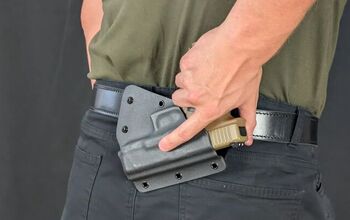


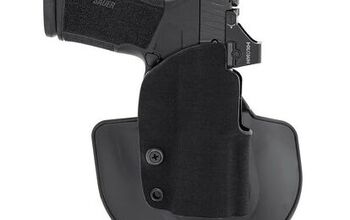

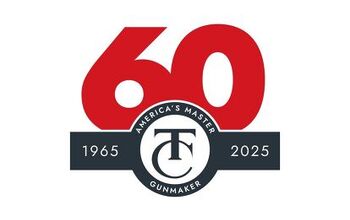
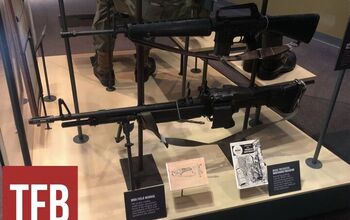



Comments
Join the conversation
This could go with a NYC loss on intermediate scrutiny or a ruling that created strict scrutiny. Either way will be a fundamental loss for Bloomberg's people. The granting of cert itself is a loss for Bloomberg's people.
Strict scrutiny or not is not the only issue. NY City has boxed itself in, just as DC boxed itself in and lost cases, based on "rights rationing" justification, which is as much a problem now for gun control supporters as the specter of strict scrutiny.
DC was arrogant, throwing up restrictions on the argument that causing less citizens to avail themselves was less dangerous. Regardless of that argument being not exactly true in the case of firearms carry, that is definitive rights rationing and why AG's from Cali, New Jersey, New York realized DC had killed its own case and would lose Wrenn/Grace in the Supreme Court.
NY City has argued rights rationing with its transport laws. In essence they are saying that just more lawful gun owners going to the range causes more net transport on the streets, even of guns cased and locked and ammo cased and locked in trunks, and the city's strategy of increasing the hassle means less people doing it. That is the justification.
There are quite a few gun control laws that have now argued: "more hassle, less people availing themselves of a right and that is better" and those laws are in danger as they work their way up the appeals system since they are also rights rationing.